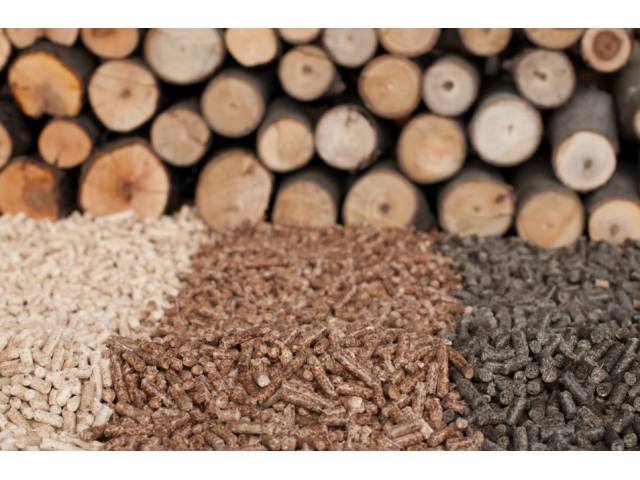Biomass or fossil fuels: which is better for environment?

The world is switching from fossil fuel to alternative energy source at present. In these circumstances, the most popular source of renewable power is biomass. During a long period of time it was supposed to be much cleaner than fossil fuels are, though it costs more. However, recent studies has revealed that burning wood is not that green, as it was considered to be before.
Biomass-fired power plants in different countries
The amount of electric power station is growing. That is why the demand for different kind of fuel is also growing. In this case, a number of power plant in several countries is switching to burning wood, either partly or completely. For instance, there are five switching power plants in the United Kingdom: Tilbury in Essex, Ironbridge in Shropshire, Eggborough and Drax in Yorkshire, and Lynemouth in Northumberland.
What is more, according to Obama’s direction, the USA were to launch higher taxes for coal-fired power plants in order to make them use biomass fuel instead. In this case, Dominion Virginia Power completed conversion of its Altavista Power Station to burning wood in 2013, for instance. This conversion was performed to reduce the emission of carbon dioxide. However, it will make citizens to pay higher electricity bills, as biomass is fuel is more expensive that fossil ones.
Recent studies reveal the disadvantages of biomass
The high cost is not the only disadvantage of burning wood. It was firstly considered as carbon neutral. This concept was developed in 1996 in Greenhouse Gas Inventory paper from the Intergovernmental Panel on Climate Change (IPCC) of the United Nation. The main argument was that new tree plants will grow up again and absorb all the carbon dioxide emitted. What is more, biomass fuel emits less of the chemical sulphur dioxide in comparison with coal.
Nevertheless, in 2008 the Rapids Energy Center plant in Minnesota revealed that 50 per cent less coal, compared to burning wood, is required to produce the same amount of energy. Consequently, the energy, which is produced by biomass fuel combustion, is twice as expensive. In addition, the Synapse Energy Economics published a paper in 2012, which revealed that burning wood emits 50 to 85 per cent more carbon dioxide than coal or natural gas does. It means that the use of biomass not only causes no reduction of carbon emission, but also increases it.
It is also curious that the combustion of wood leads to fine particulates and harmful chemical compounds release. It makes a negative impact on health of those citizens, who lives close to biomass-fired power plants. Breathing the air, which is polluted with this compounds, causes heart and lung diseases. All these facts are absolutely ignored by governments, and the government of the United Kingdom is not an exception.
The use of biomass leads to forest destruction
As it was mentioned before, there are five biomass-fired power plants in the UK. However, this country is not able to produce a sufficient amount of biomass fuel. That is why the raw material required is being imported from different countries and regions. These are USA (Southern part of the country), Canada, Russia as well as Baltic and Scandinavian States, Portugal and some other Mediterranean countries.
A large-scaled import of wood leads to the destruction of big forest areas and their ecosystems. Moreover, though trees plants and forests are believed to absorb carbon dioxide emitted, it will take a lot of time for trees to grow mature enough for that. It means that during the period, when trees are growing, the amount of carbon dioxide released will be so large, that it will probably cause a disaster.
It is also necessary to add, that there are some legal restriction concerning location of trees, which are planted or just cut down in order to be imported. In this case, companies are looking for cheap and available areas for their business. Such areas are mostly situated in the poorest countries. The grabbing of these lands by businesses for biomass production leads to food price increase, as citizens loose an opportunity to grow food on their lands.
In summary, though biomass becomes the most popular kind of fuel, it is not able to solve climate issue, as it was considered before. What is more, the use of burning wood is only worsening the situation. First, the combustion of biomass fuel leads to the higher rate of carbon dioxide emission in comparison with coal or natural gas. It also leads to the emission of some other compounds, which make a negative impact on human health. Second, wood is more expensive and less energy efficient if compared to fossil fuels. Third, the production of biomass leads to the destruction of forest ecosystems in a wide range of countries. Nevertheless, all these facts are ignored by the governments, and the climate issue becomes more and more keen.
Biomass or fossil fuels: which is better for environment?

Any copying and distributing the material of Ukrainian Biofuel Portal
without active hyperlink is stricly prohibited !
Link to this news:
Biomass or fossil fuels: which is better for environment?
Copy & Paste This Code to your website:
Views: 2835 Added: 16-12-2015






